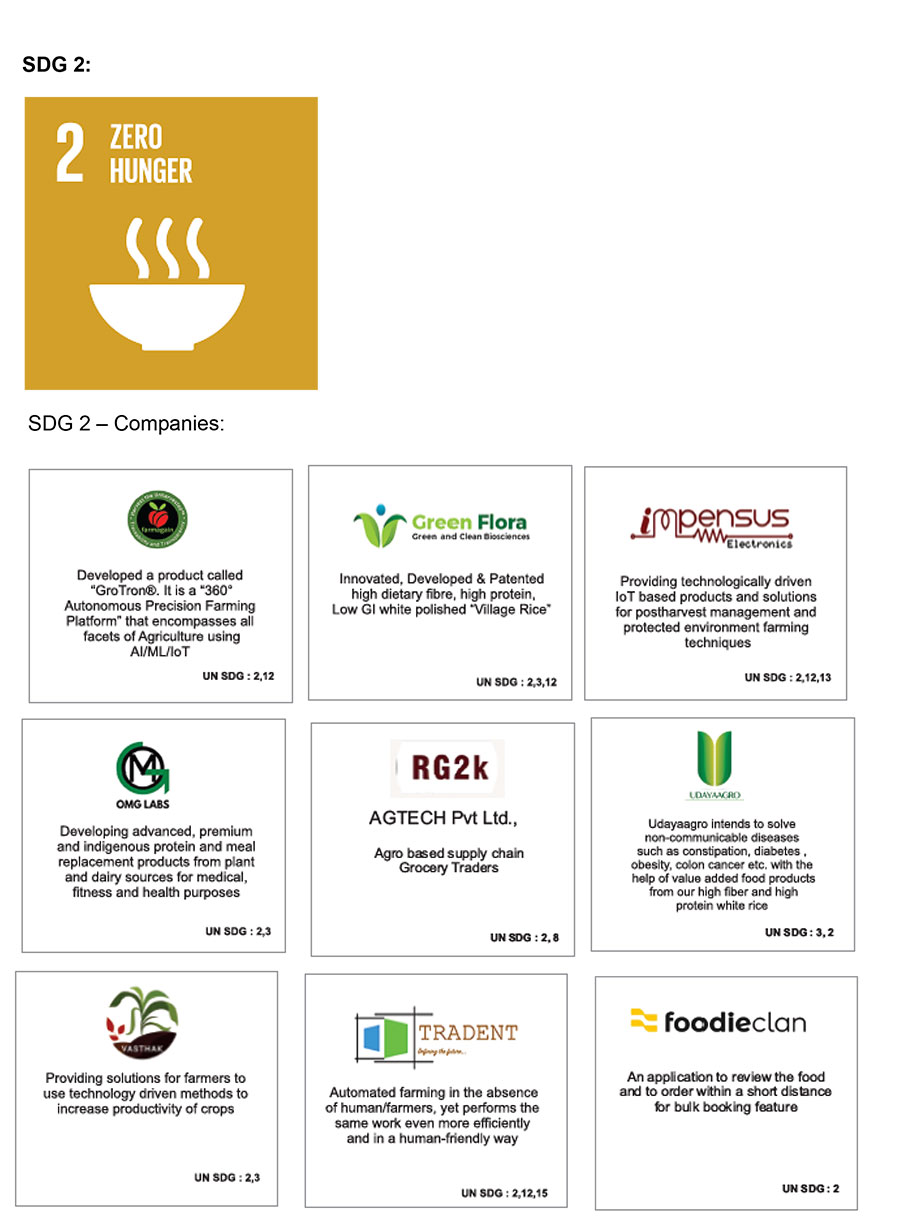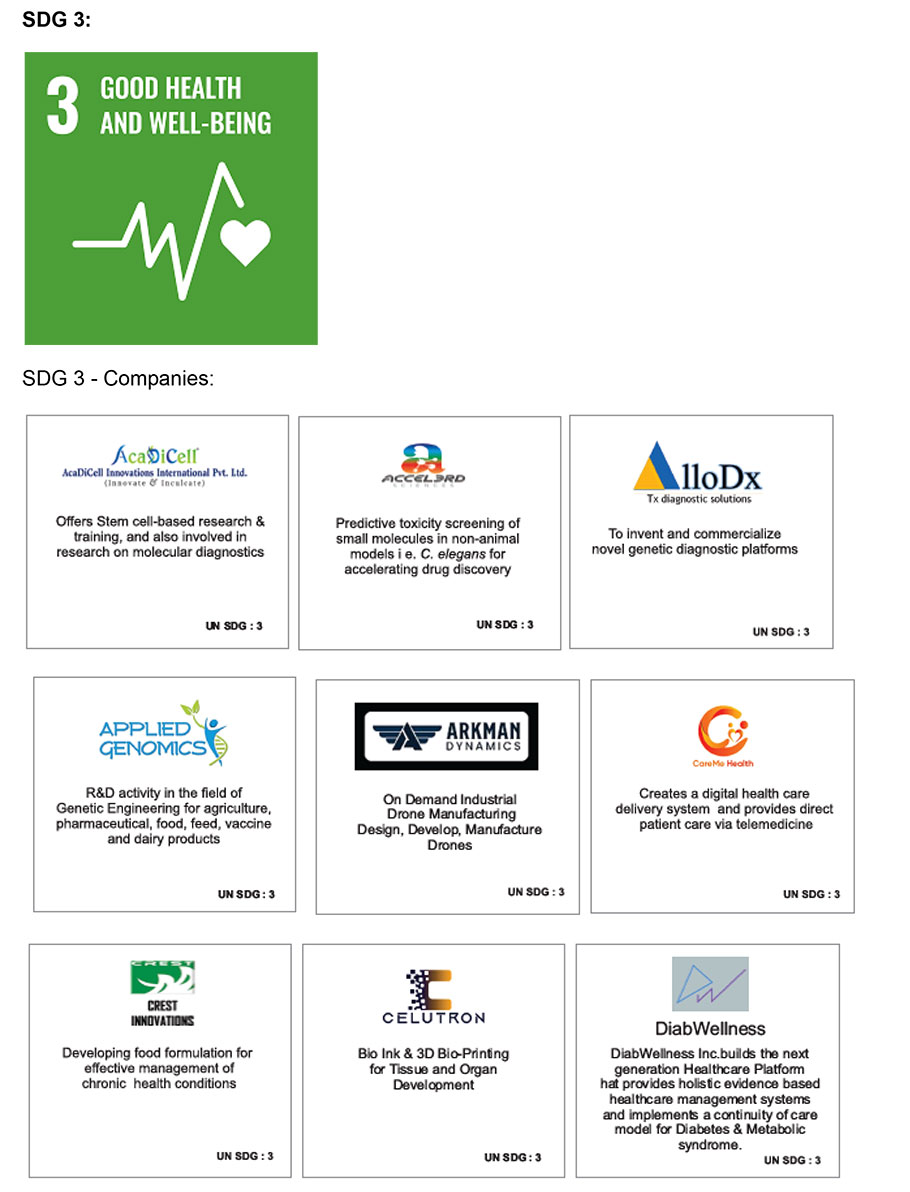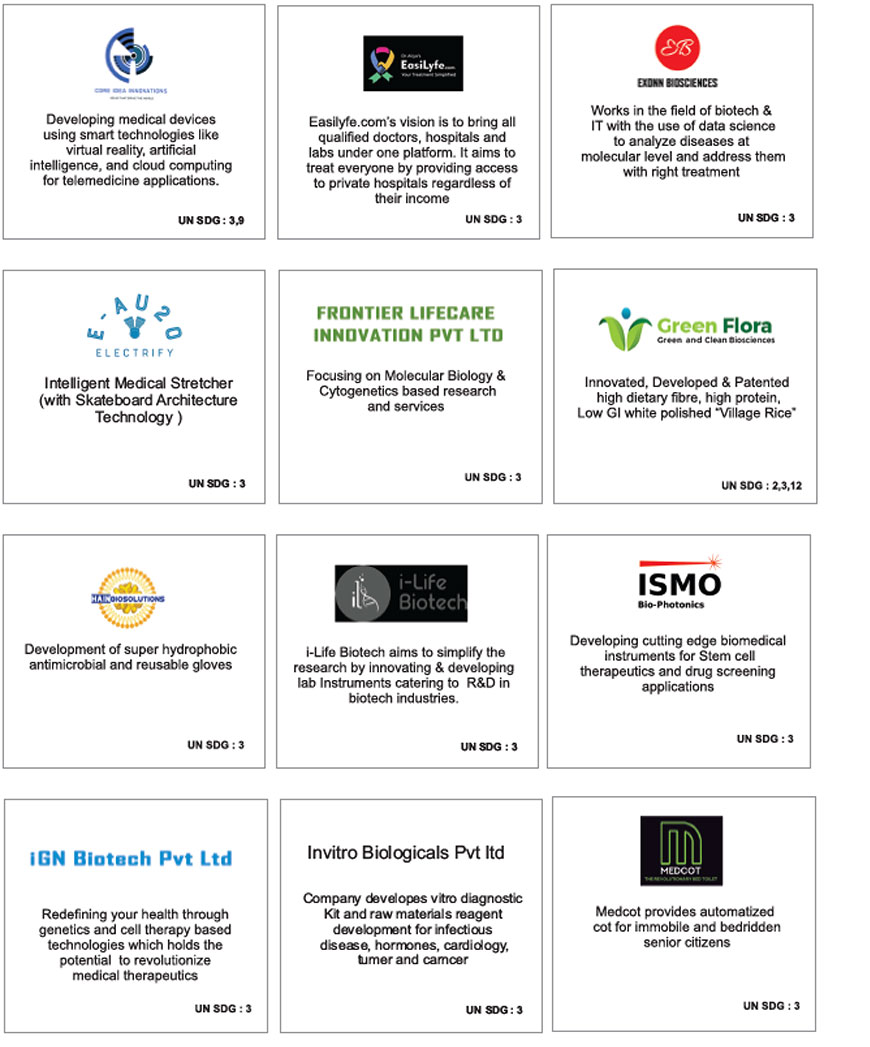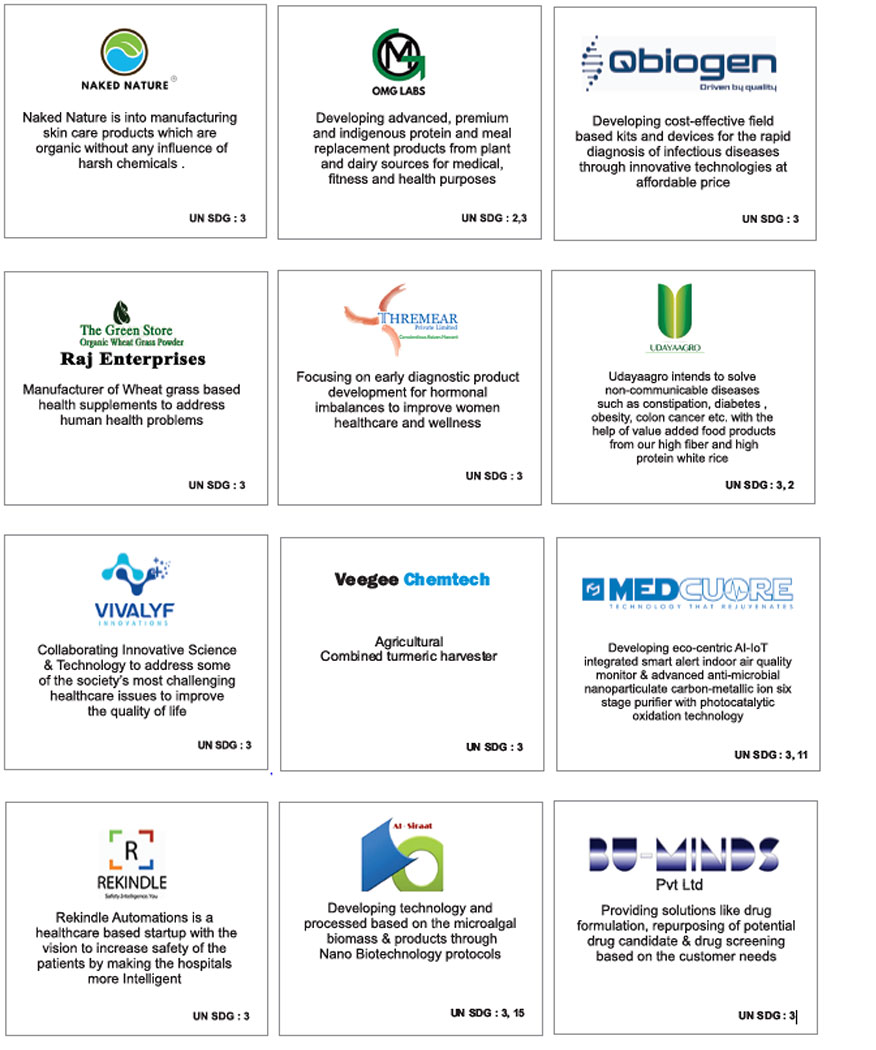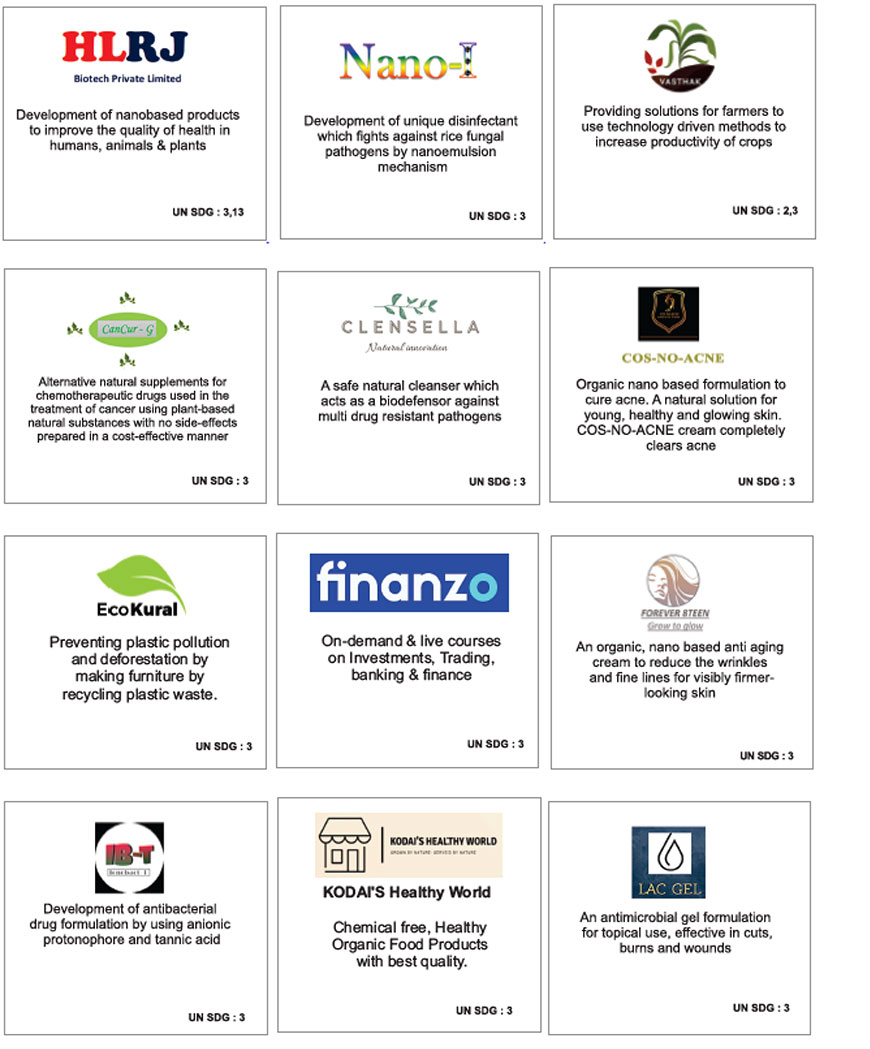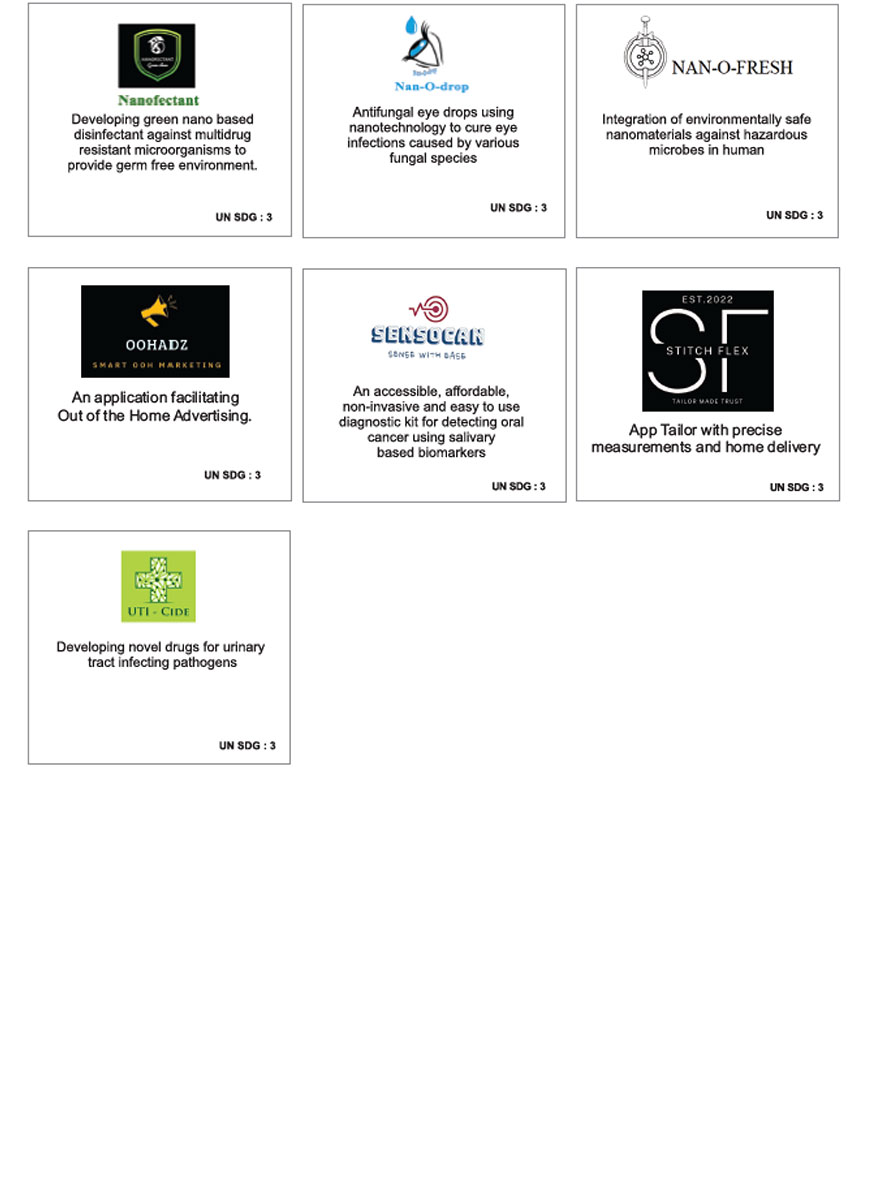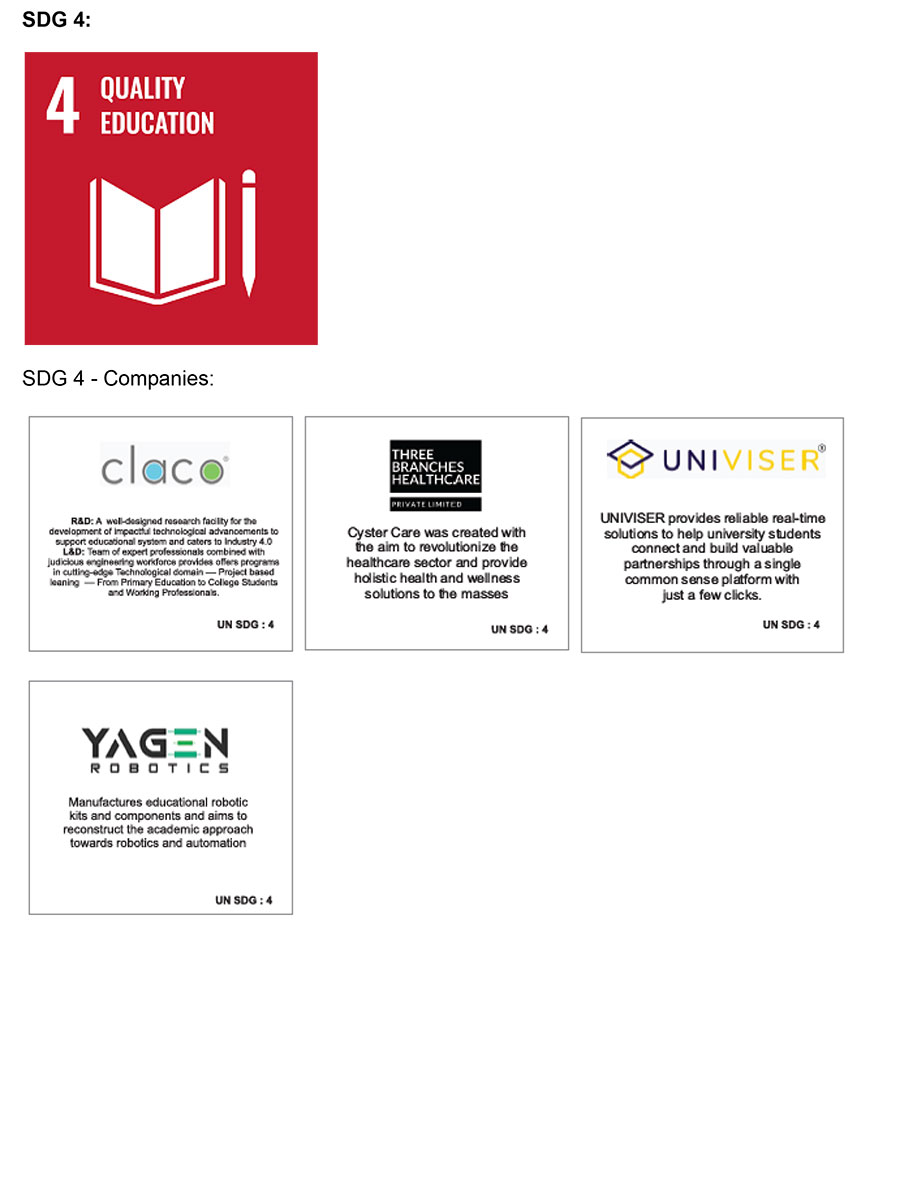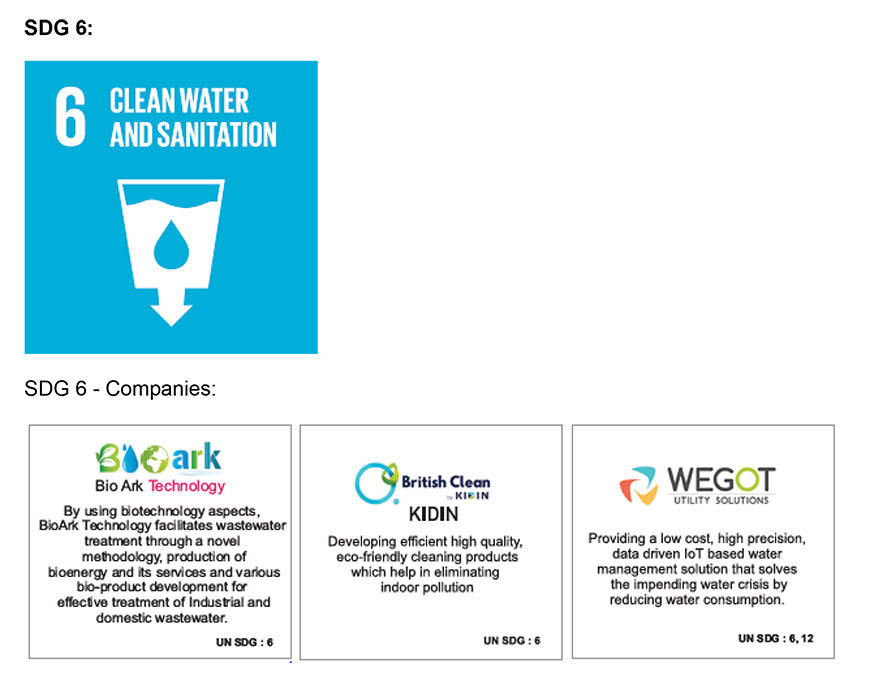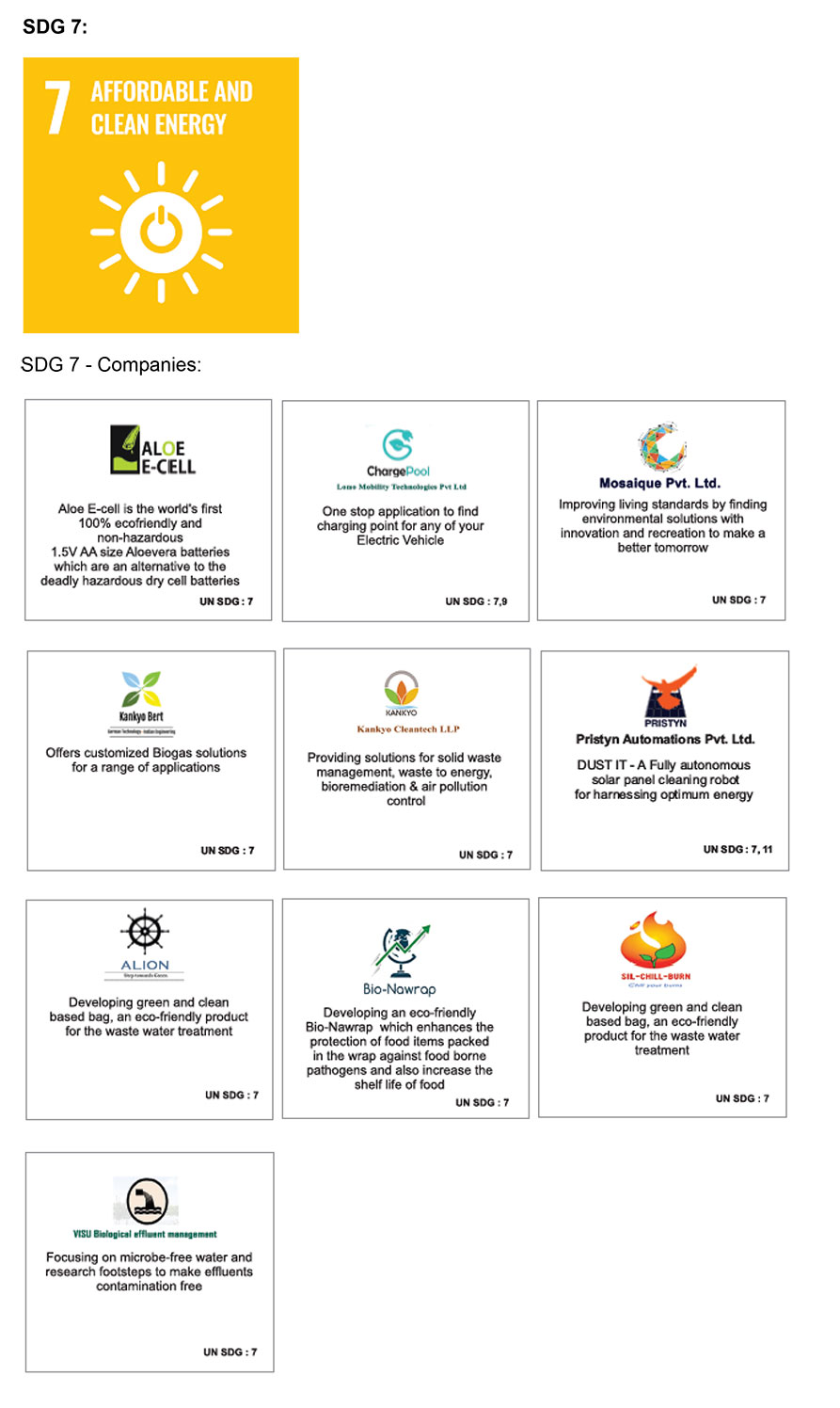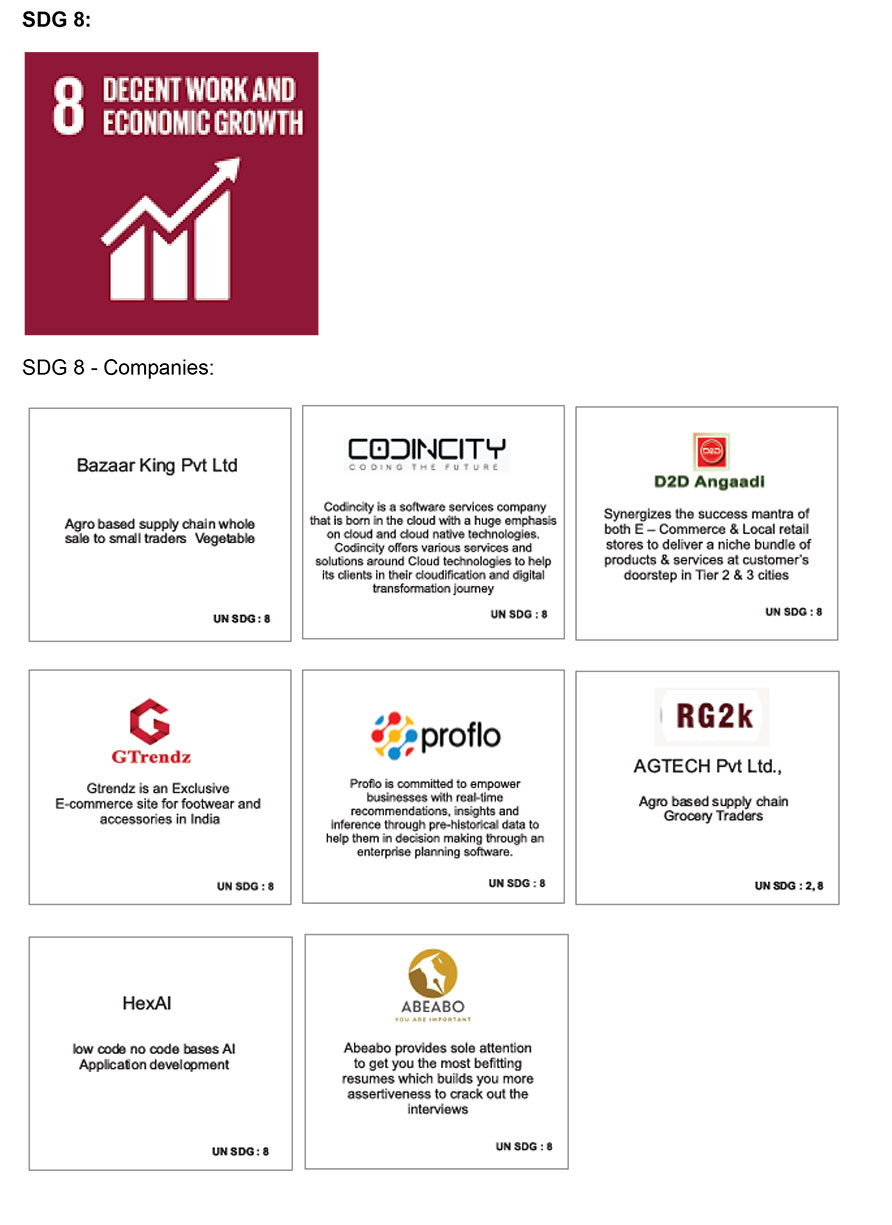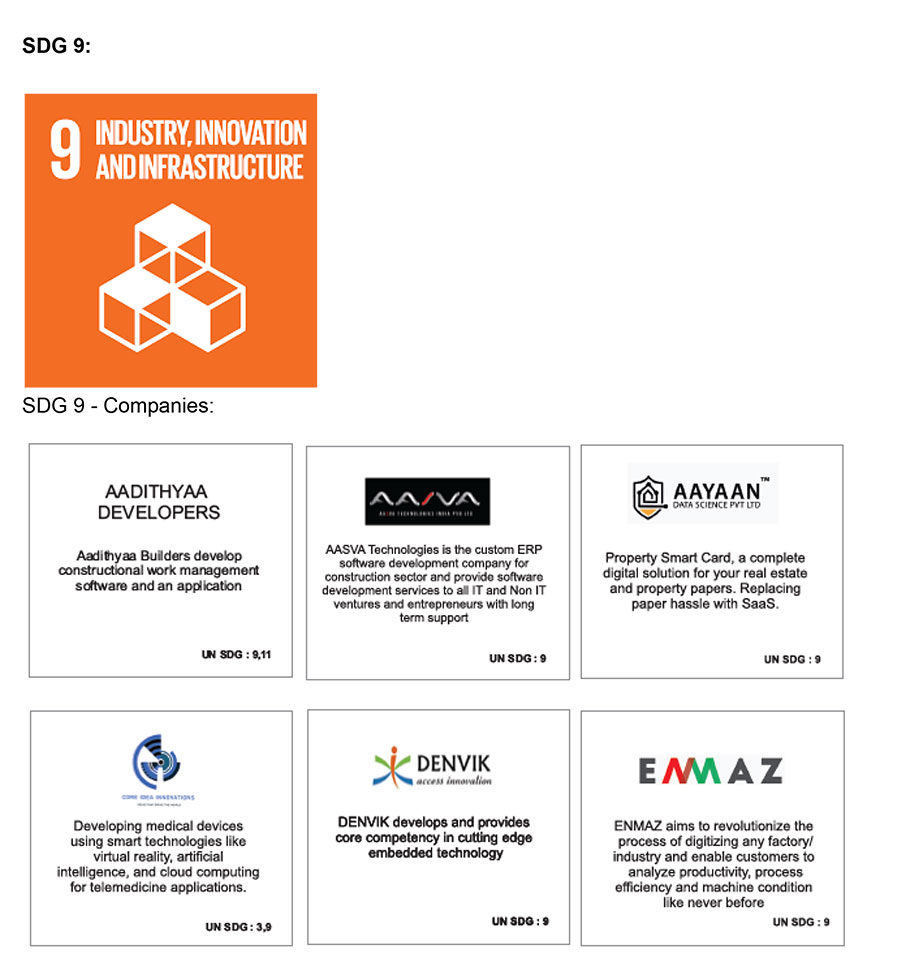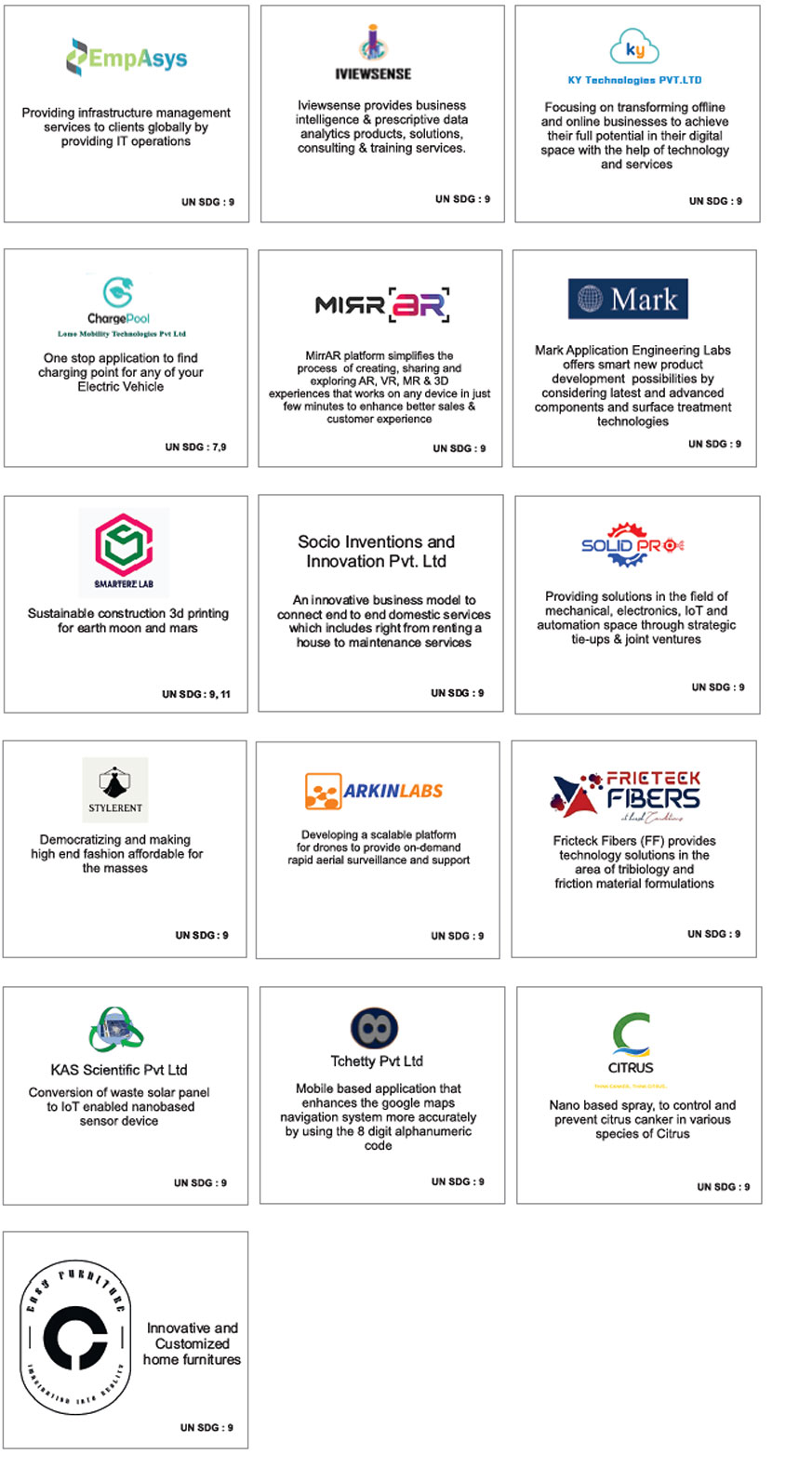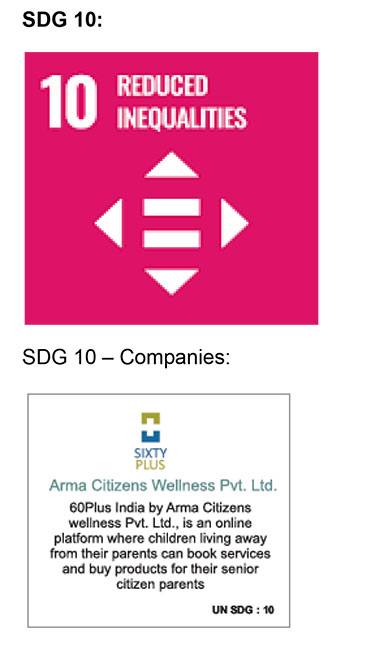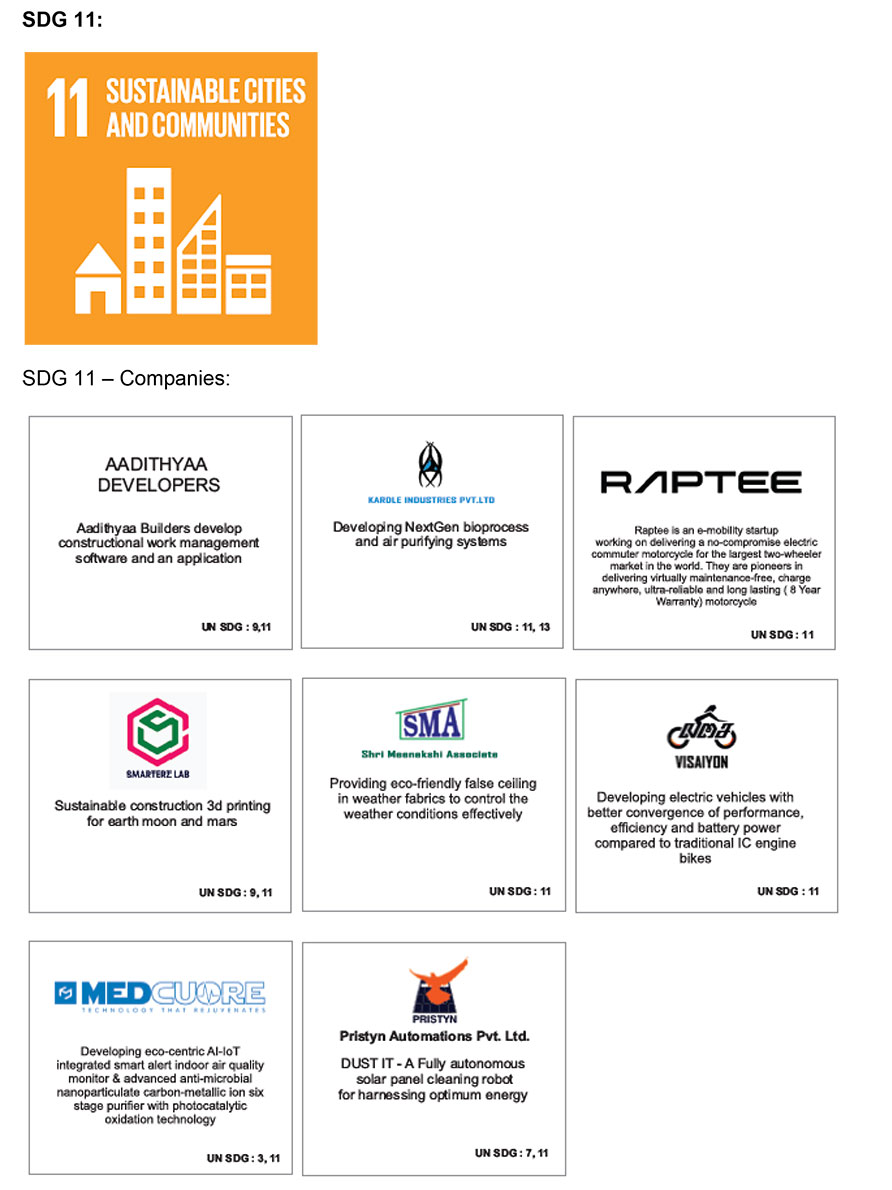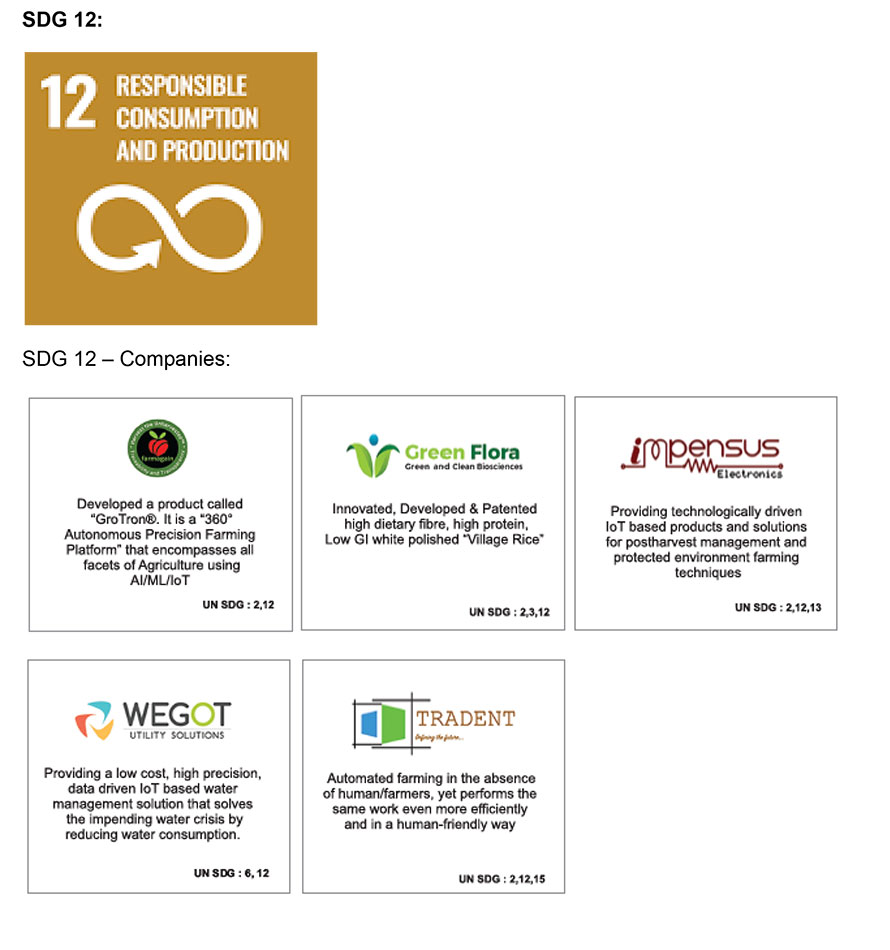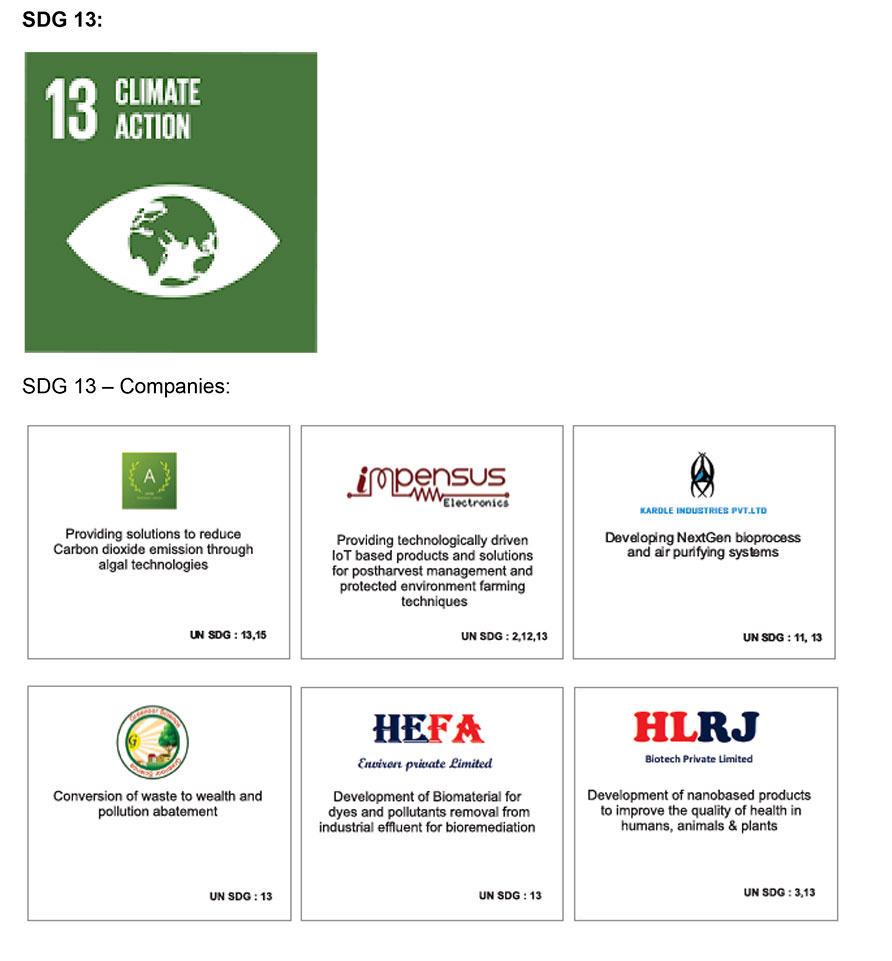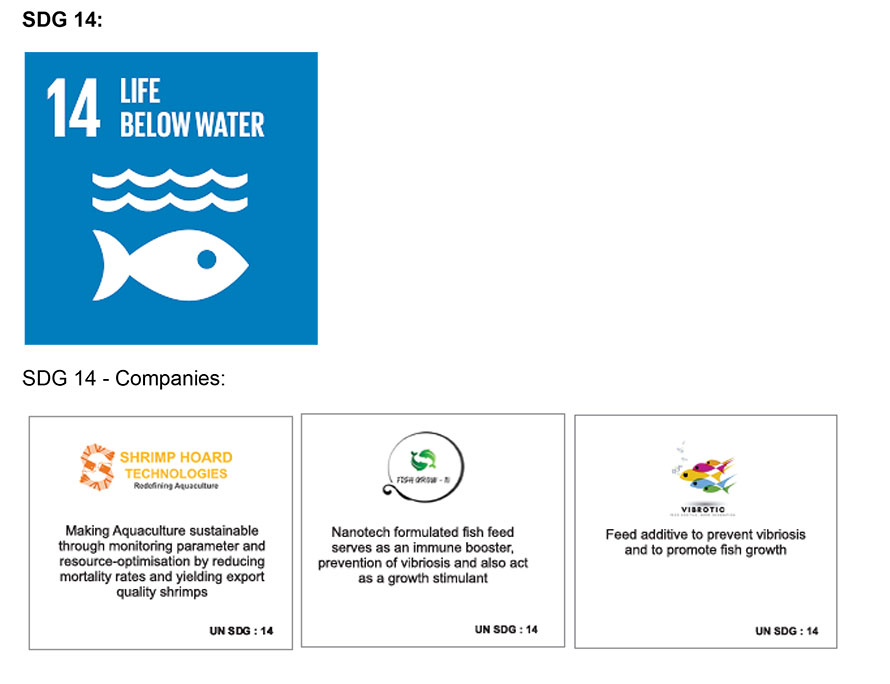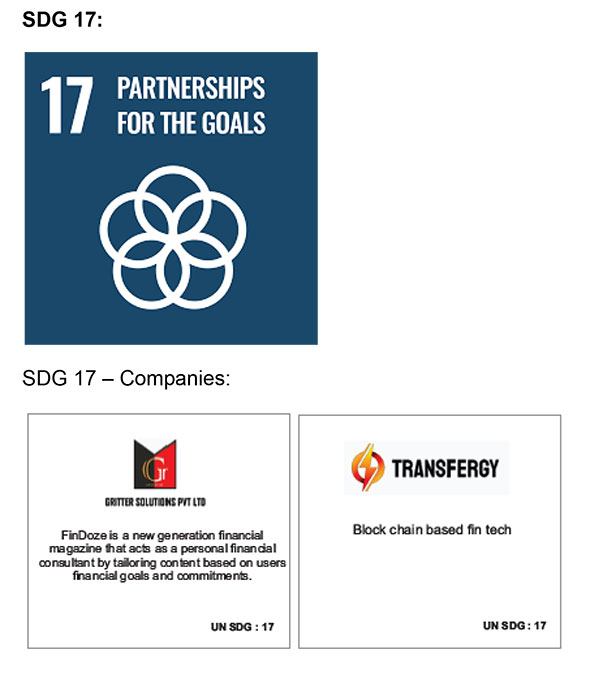Crescent Sustainability Initiatives
Partnerships for the Goals (SDG 17)
ADVANCING SUSTAINABLE DEVELOPMENT GOALS
The B.S. Abdur Rahman Crescent Institute of Science and Technology has made significant strides in fostering collaboration for best practices in achieving the Sustainable Development Goals (SDGs). Central to this initiative is the Crescent Innovation and Incubation Council (CIIC), which serves as a leading incubator in India, hosting over 130 start-ups across diverse sectors such as Life Sciences, Industry 4.0, and Smart Mobility. By employing a Triple ‘M’ Strategy—Mentor, Money, and Market—CIIC empowers entrepreneurs to develop innovative solutions that align with the SDGs, thereby enhancing both individual start-up capacities and broader societal impacts.
EDUCATIONAL INITIATIVES: INTEGRATING SUSTAINABILITY
The institute has established partnerships through Memoranda of Understanding (MoUs) with various organizations, including Gibraltar Technologies in Dubai, to implement the SUCCEED initiative (Sustainability Centric Crescent Education for Entrepreneurship Development). This initiative aims to create a flexible, competency-based curriculum that equips learners with the necessary knowledge, skills, values, and attitudes for sustainable development. By integrating SDGs into the educational framework, the institute fosters a culture of awareness and action among students, preparing them to be responsible global citizens.
BUILDING GLOBAL NETWORKS: FOCUS ON INTERNATIONAL COLLABORATION
International collaboration has been a key focus, with activities such as meetings with representatives from the International SDGs Human Resource Support Association and discussions with delegates from various universities in Dubai. These engagements aim to promote student and faculty exchange programs, enhance cross-cultural learning experiences, and facilitate knowledge sharing. The institute is committed to developing international best practices that contribute to sustainable development by exploring comparative approaches and successful strategies from different contexts.
RESEARCH-DRIVEN SOLUTIONS: EVALUATING AND ENHANCING PRACTICES
Research initiatives also play a crucial role in this collaborative effort. CIIC promotes evidence-based solutions by evaluating existing methodologies and benchmarks related to the SDGs. This research-driven approach helps refine strategies employed by start-ups, ensuring that their initiatives are innovative but also sustainable and scalable. The commitment to research and evaluation enhances the incubator’s role as a catalyst for change, driving impactful solutions within the community and beyond.
PIONEERING A SUSTAINABLE FUTURE
In conclusion, the B.S. Abdur Rahman Crescent Institute of Science and Technology exemplifies a proactive approach to collaboration for SDG best practices. The institute is paving the way for sustainable solutions that transcend local boundaries through strategic partnerships, innovative educational initiatives, and a focus on research. By nurturing a thriving ecosystem of start-ups and fostering international engagement, the institute inspires a new generation of entrepreneurs to contribute meaningfully to global challenges, reinforcing its commitment to the Sustainable Development Goals.
SUCCEED (SUSTAINABILITY CENTRIC CRESCENT EDUCATION FOR ENTREPRENEURSHIP DEVELOPMENT)
BEST PRACTICE
Title of the Practice: SUCCEED – Sustainability Centric Crescent Education for Entrepreneurship Development
To develop the best practice for the implementation of SDGs, MoU was signed with M/s Gibraltar Technologies, Dubai, on 5th November 2020. Several meetings were conducted School/Department-wise involving stakeholders such as faculty members, students and employees of Gibraltar Technologies (GT).
The meeting outcomes resulted in SUCCEED (Sustainability Centric Crescent Education for Entrepreneurship Development), the best practice for implementing SDGs.
Our faculty members and students are carrying out a few projects to address the SDGs in collaboration with GT are listed below.
OBJECTIVES OF THE PRACTICE
- To bring a holistic transformational change within societies, economies and the environment through sustainable centric education.
- To develop and implement a curriculum intended to be flexible and non-prescriptive that follows a competency development model through a combination of knowledge, skills, values and attitudes.
- To enable the delivery of the SDGs by ensuring that each learner has the relevant skills, knowledge, values and attitudes for social, economic and environmental development, and to work in partnership to create peaceful societies.
- To ensure that all learners acquire the knowledge and skills needed to promote sustainable development by 2030 through education for sustainable development and sustainable lifestyles, human rights, gender equality, promotion of a culture of peace and non-violence, global citizenship and appreciation of cultural diversity and culture’s contribution to sustainable development.
THE CONTEXT
Education is one of the Sustainable Development Goals (SDGs) in itself and as a catalyst for broader change.
Education is critical in shaping individual and collective knowledge, skills, values and attitudes to enable people to move along pathways towards sustainable development, and a catalyst for development itself. It is a key determinant of social and economic transformation, and an essential precursor to peace, tolerance and sustainability. Moreover, it equips learners of all ages with the knowledge, skills, values and attitudes needed to be responsible global citizens, such as respect for human rights, gender equality and environmental sustainability.
The purpose of the SDGs centric education is to develop successful learners, confident individuals, and responsible citizens who are resilient and uphold the core values and principles of the nation.
THE PRACTICE
The curriculum encompasses learning content and outcomes, and shifts learning from being only content-driven to being outcome-driven, action-oriented and participatory. The aim is that all learners can become engaged in promoting the transformation required for sustainable development.
The curriculum deals with the knowledge, skills, attitudes and values in relation to each of the SDGs and outlines:
- The knowledge or content areas to be focused on, making provision for the inclusion of indigenous and traditional knowledge topics.
- The skills to be developed
- The values and attitudes that are desirable for the successful accomplishment of the learning outcome
At present, Core competencies required for sustainable development such as team building, communication, decision making, problem-solving, sense of community, self-esteem, personal responsibility, empathy, moral development, ethics, values, resilience and improved inclination for educational achievement are attained through few of the curricular courses and extension and outreach activities. Integrating the topic of the SDGs into a curriculum allows learners to understand their multiple identities, to work out what their roles should be for living together on a common planet and building a better future in an interdependent world at local, national and global levels.
EVIDENCE OF SUCCESS
The Crescent Innovation and Incubation Council (CIIC) encouraged the stakeholders (primarily the start-ups) to address the SDGs. As a result, our university’s faculty, students, and alumni created start-ups with the support of CIIC; 63 external start-ups, ten alumni start-ups, 14 faculty start-ups, and 26 student start-ups. Our university participated in the Times Higher Education (THE) Impact Ranking in 2020 and 2021 in the following SDGs: SDG 4: Quality Education, SDG 5: Gender Equity, SDG 6: Clean Water and Sanitation, SDG 7: Affordable and Clean Energy, SDG 9: Industry Innovation and Infrastructure and SDG 17: Partnership for the Goals. The rank bands are:
Our university participated in the following Green initiative award in 2019 and 2020.
Beema Bamboo is one of the fastest-growing plants on earth under tropical conditions. As a result, it will act as the best carbon sink for carbon-di-oxide emission, one of the major greenhouse gases that can be effectively and quickly brought down by the trees that grow fast by absorbing carbon-di-oxide. About 2000 Beema Bamboos were planted in the university campus during the last two years to reduce carbon footprint and help fight global warming. Our faculty members published quite a few papers in high-quality research journals addressing the SDGs. Complete compulsory courses relevant to the environment, ethics, human values and sustainability were introduced in the curriculum. In addition, about 10% of elective courses addressing the SDGs are offered to the students.
PROBLEMS ENCOUNTERED AND RESOURCES REQUIRED
The development of the curriculum involved the identification and description of the competencies that learners should acquire, with an emphasis on the results of learning. In the context of the sustainability centric curriculum, the following was sought: a set of integrated competencies derived from the core competencies that learners need to develop for active and responsible participation in all relevant fields of life and to implement the SDGs, including empathy, ethics, compassionate values, and the ability to express social and environmental concerns and change behaviours. Integrated competencies and learning outcomes, specified in three categories – knowledge, skills, and values and attitudes, are adopted from “A Curriculum Framework for the Sustainable Development Goals – First Edition, Commonwealth, 2017” and “Education for Sustainable Development – Learning Objectives, UNESCO, 2017”.
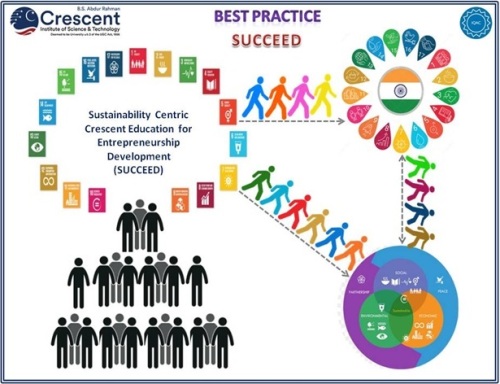
Figure XVII (2.4) – 1 : SUCCEED (Sustainability Centric Crescent Education for Entrepreneurship Development) – Best Practice followed in the Institute
ANNUAL SDG ACCORD REPORT 2024 PUBLISHED
EAUC has published the 7th annual SDG Accord progress report, highlighting the collective progress towards the SDGs in the college and university sector.
1. The SDG Accord is a worldwide initiative bringing together over 2800 organisations and individuals dedicated to promoting the United Nations Sustainable Development Goals (SDGs) in universities and colleges. It is endorsed by the United Nations Sustainable Development Solutions Network and United Nations Environment Programme.
This year’s report is the biggest yet, analysing data from 184 institutions across 40 countries to identify trends in progressing the goals across the sector. It also comes in a crucial year as global leaders meet to assess the progress and future of these goals, and has been launched this year to coincide with Global Goals Week.
It includes case studies which highlight real-world examples from signatories, highlighting different ways colleges and universities are integrating the SDGs into their work and overcoming obstacles.
2. The Dual Purpose of the SDG Accord in Promoting Cross-Sectoral Dialogue
The SDG Accord serves a dual purpose in fostering cross-sectoral dialogue about the Sustainable Development Goals (SDGs). First, it aims to inspire, celebrate, and advance the critical role of education in achieving the UN SDGs, highlighting the significant value these interlinked objectives bring to governments, businesses, and society at large. By showcasing successful initiatives and practices in education, the Accord encourages collaboration among various stakeholders, including government agencies, non-governmental organizations (NGOs), and educational institutions.
3. Commitment to Action: Strengthening Efforts Towards the SDGs
Second, the Accord represents a collective commitment by educational institutions to enhance their efforts in delivering the SDGs. Signatory institutions pledge to take actionable steps and regularly report on their progress, fostering a culture of transparency and accountability. This commitment includes sharing insights and best practices with one another both nationally and internationally, thereby enriching the cross-sectoral dialogue surrounding the SDGs.
4. Engaging in Global Dialogue: Objectives of the SDG Accord
Key objectives of the SDG Accord involve the annual presentation of updated metrics and progress reports at the UN High Level Political Forum on Sustainable Development. By participating in these high-profile conferences, institutions can engage with policymakers and stakeholders, effectively contributing to discussions on sustainability and educational reform. This collaborative approach not only strengthens partnerships across sectors but also helps shape effective policies aimed at advancing the SDGs globally.
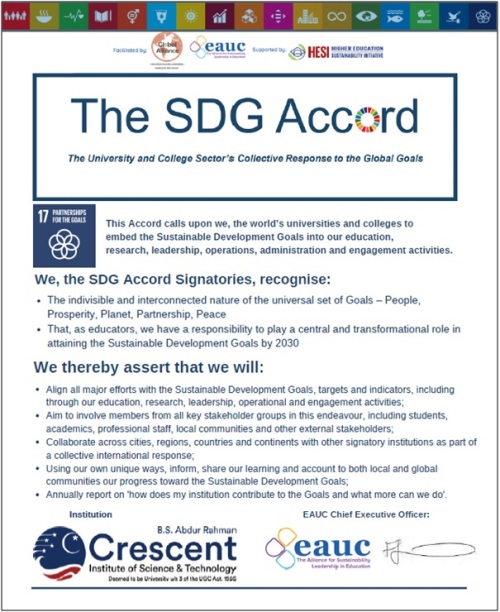
Figure XVII (2.4) – 2: SDG Accord Certificate
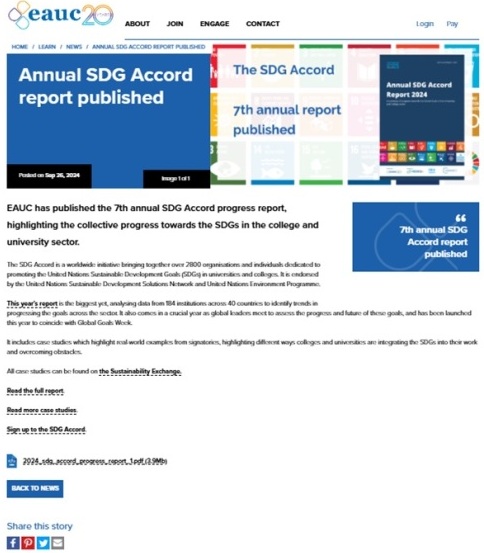
Figure XVII (2.4) – 3: Annual SDG Accord Report Published
SDG ACCORD REPORT 2024
Report Link : https://crescent.education/wp-content/uploads/2024/11/SDG-ACCORD-REPORT-2024.pdf
Website Link : https://www.eauc.org.uk/annual_sdg_accord_report_published1
Table XVII (2.4) – 1 : Partnerships and Collaborations of B.S. Abdur Rahman Crescent Institute of Science and Technology Aligned with Sustainable Development Goals
FOSTERING INTERNATIONAL COLLABORATION FOR SUSTAINABLE DEVELOPMENT GOALS
On May 17, 2023, from 2:30 PM to 4:10 PM, Dr. Ayub Khan Dawood, Dean of the School of Social Sciences and Humanities, in conjunction with the Centre for International Relations (CIR), organized a significant meeting with Mr. Hiroaki Yumoto, Chairman of the International SDGs Human Resource Support Association (ISHA) from Osaka. The meeting took place in Seminar Hall III of the Convention Centre and was chaired by our esteemed Advisor, Dr. V. Murugesan.
During this engaging session, Mr. Yumoto, along with Mr. Karunanidhi from the KCCS Indo-Japan Bridge Organization, explored potential collaborative opportunities with Japanese institutions and industries. Key areas of discussion included fostering student and faculty exchange programs, aligning with our commitment to partnership for the Sustainable Development Goals (SDGs). This cooperation aims to enhance cross-cultural learning experiences, promote knowledge sharing, and contribute to building a sustainable future through education and international collaboration.
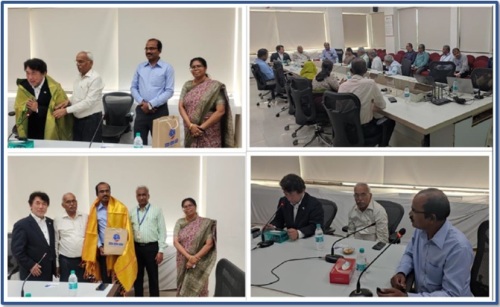
Figure XVII (2.4) – 4: Mr. Yumoto and Mr. Karunanidhi from KCCS Indo Japan bridge organization
INTERNATIONAL COLLABORATION ACTIVITIES TOWARDS SDGS IN DUBAI
Dr. P. Rathna, Director of the Centre for International Relations (CIR), visited Dubai from April 24 to 30, 2023, to promote international relations activities. On April 25, she met with Mr. Nabeel, an officer at the Knowledge and Human Development Authority (KHDA), to successfully submit details regarding the BSACIST Education Support Services through their online portal.
During her visit, Dr. Rathna also engaged in valuable discussions with delegates from various international universities, exploring potential collaborations that align with our commitment to advancing the Sustainable Development Goals (SDGs). These discussions focused on fostering partnerships that enhance educational opportunities and promote cross-border knowledge exchange, further strengthening our dedication to global educational initiatives.
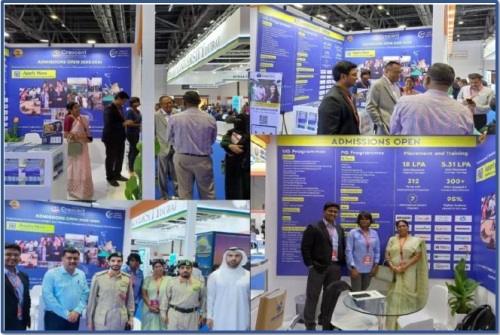
Figure XVII (2.4) – 5: Dr.Rathna engaged in valuable discussions with delegates from various international universities
ENHANCING SUSTAINABLE DEVELOPMENT THROUGH INTERNATIONAL INTERNSHIPS
On March 2, 2023, the Centre for International Relations (CIR) hosted a meeting focused on International Internships related to Sustainability Projects. During the session, Mr. Abdul Qadhir Bukhari from Green Global and Mr. Haja Mohideen from Denvik Technology engaged with interested students to discuss opportunities for hands-on experience in sustainability.
This meeting aligns with our commitment to sustainable development by fostering direct involvement in policy development related to the Sustainable Development Goals (SDGs). Discussions included identifying challenges in sustainability initiatives, exploring effective strategies, and modeling potential outcomes based on varying intervention approaches. By providing students with these internship opportunities, CIR aims to enhance their understanding of adaptive management practices and contribute to national and regional efforts in advancing SDG objectives.
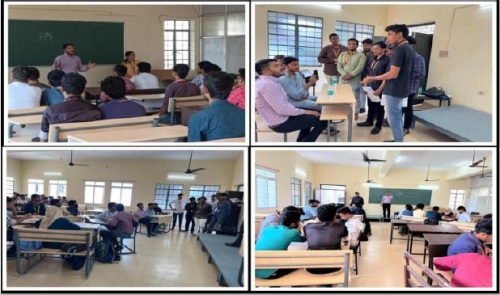
Figure XVII (2.4) – 6 : Mr. Abdul Qadhir Bukhari from Green Global and Mr. HajaMohideen from Denvik Technology engaged with interested students to discuss opportunities for hands-on experience in sustainability
EMPOWERING FUTURE LEADERS THROUGH INTERNATIONAL INTERNSHIPS IN SUSTAINABILITY
Final year Electrical and Electronics Engineering (EEE) students, Mohamed Sabiq, Ganesh Kumar, and Vinit Kumar, have been shortlisted for international internships with Denvik Technology in the UAE, focusing on sustainability projects.
This opportunity aligns with our commitment to engaging students in activities that contribute to Sustainable Development Goals (SDGs). Through these internships, students will actively participate in identifying challenges and strategies related to sustainability. Their involvement will also encompass modeling potential outcomes of various interventions, contributing to monitoring and reporting efforts, and fostering adaptive management approaches in sustainability initiatives. This experience will equip them with the skills and insights necessary to influence SDG policy development at both national and regional levels.



Figure XVII (2.4) – 7: Final year Electrical and Electronics Engineering (EEE) students, Mohamed Sabiq, Ganesh Kumar, and Vinit Kumar, have been shortlisted for international internships
SDGs Focused Statrtups (https://www.ciic.ventures/)
SDG Best Practice – Start-ups
B. S. Abdur Rahman Crescent Institute of Science and Technology possesses one of the top Incubators in India- Crescent Innovation and Incubation Council (CIIC). The CIIC houses 120 start-ups from different sectors, such as Life Sciences, Industry 4.0, and Smart mobility and transportation. The CIIC builds and nurtures our society by nudging entrepreneurs with Integrity, Sustainability, and a Culture of innovation, a Triple ‘M’ Strategy (Mentor, Money, and Market). The CIIC encourages Start-ups to provide the solution for the SDG problem. The Start-ups are as follows:
Policy for Partnerships for the Goals
Issue: 04; Revised on 2023
| Policy Created on | July 2009 |
| 1st Revision amended on | IQAC Meeting held on 27th October 2017 |
| 2nd Revision amended on | IQAC Meeting held on 31st March 2021 |
| 3rd Revision amended on | IQAC Meeting held on 16th June 2023 |
17.1. OBJECTIVE
The primary objective of this policy is to establish and strengthen partnerships among universities, government bodies, NGOs, and the private sector to promote sustainable development through collaborative efforts, knowledge sharing, and resource mobilisation.
17.2 STATEMENT OF POLICY
The following metrics and indicators will guide the implementation of this policy.
- Research into Partnerships for the Goals: Increase the proportion of academic publications co-authored with low or lower-middle-income countries to foster global collaboration.
- Relationships to Support the Goals: Develop mechanisms to gather data on SDG progress and promote best practices through cross-sectoral dialogue.
- Publication of SDG Reports: Institutions must commit to publishing data on their performance against each of the 17 SDGs, ensuring transparency and accountability.
- Education for SDGs: Ensure a commitment to meaningful education around the SDGs across all university programs relevant to all students.
- Collaboration for SDG Best Practices: Engage in international collaboration to review and develop best practices for tackling the SDGs.
17.3 RESPONSIBILITIES
- Establish Collaborative Frameworks:
- Create Memoranda of Understanding (MoUs) with local and international organizations, NGOs, and government agencies to formalise partnerships.
- Engage in joint research initiatives that align with SDGs
- Enhance Sustainability Literacy:
- Integrate sustainability concepts into the curriculum across all disciplines, ensuring that students acquire the necessary knowledge, skills, and values to contribute to sustainable development.
- Implement workshops and training sessions for faculty and students to enhance understanding of the SDGs and their interconnections.
- Promote Cross-Sectoral Dialogue:
- Organize annual conferences and seminars that bring together stakeholders from academia, industry, and government to discuss progress, challenges, and innovative solutions related to the SDGs.
- Facilitate platforms for knowledge exchange, such as webinars and collaborative projects, to share best practices and successful case studies.
- Monitor and Evaluate Partnerships:
- Develop a robust monitoring and evaluation framework to assess the effectiveness of partnerships and their contributions to achieving the SDGs.
- Utilize data collected from partnerships to inform policy decisions and improve collaborative efforts.
17.4 IMPLEMENTATION
- Short-term (1-2 years): Establish partnerships, integrate sustainability literacy into the curriculum, and initiate cross-sectoral dialogues.
- Medium-term (3-5 years): Expand collaborative research projects, publish annual SDG reports, and evaluate the impact of partnerships.
- Long-term (5+ years): Foster a culture of sustainability within the institution and the community, ensuring ongoing commitment to the SDGs.
17.5 DISSEMINATION OF POLICY
. A. Signage and Visual Communication
- Campus Signage:
- Display clear and informative signage throughout the campus highlighting key aspects of the Partnerships for the Goals policy, focusing on sustainability practices.
- Utilize engaging visuals and infographics that effectively capture attention and communicate important messages.
B. Awareness Programs
- Regular Workshops and Seminars:
- Conduct awareness programs at regular intervals, including workshops, seminars, and training sessions to educate the campus community about the importance of partnerships for sustainability.
- Use interactive formats to promote engagement, encourage dialogue, and facilitate knowledge sharing among participants.
- Student and Faculty Involvement:
- Involve students and faculty in planning and executing awareness programs, fostering a sense of ownership and responsibility towards the policy’s implementation.
- Encourage student-led initiatives that promote collaboration and sustainability practices across campus.
C. Digital Communication
- Website Updates:
- Post the Partnerships for the Goals policy on the Institute’s official website, ensuring easy access for all stakeholders.
- Regularly update the webpage with new information regarding events, initiatives, and progress related to the policy.
- Social Media Engagement:
- Utilize social media platforms to raise awareness about the policy, share success stories, and promote upcoming events related to partnerships and sustainability.
- Create engaging content, including videos, infographics, and testimonials, to reach a broader audience and enhance visibility.
D . Key Performance Indicators (KPIs)
- Track the effectiveness of dissemination strategies through metrics.
17.6 ENFORCEMENT OF POLICY
a) The Dean of Schools and Head of the Departments monitor compliance and address breaches.
b) Awareness of the policy among students, staff, and visitors is essential.
c) Breaches may lead to disciplinary action per the Institute’s code of conduct.
REGISTRAR


